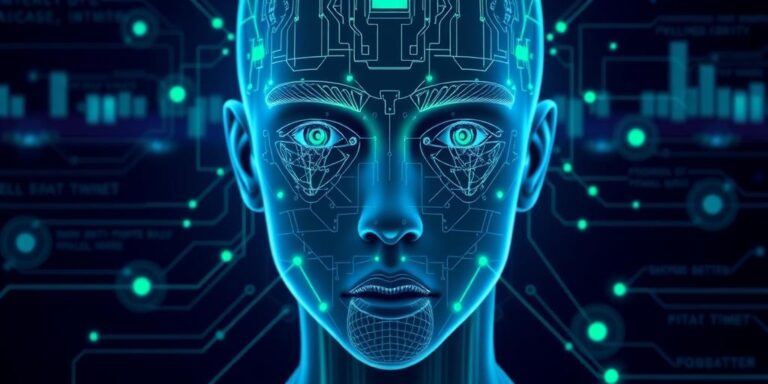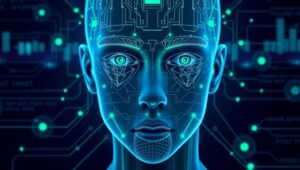Affective Computing: Machines That Understand and Respond to Emotions (2027)
Imagine a world where your devices not only respond to your commands but also understand your feelings. This is the promise of affective computing, a rapidly evolving field at the intersection of computer science, psychology, and cognitive science. By 2027, affective computing is poised to transform how we interact with technology, making our interactions more intuitive, personalized, and human-like.
What is Affective Computing?
Affective computing is the study and development of systems and devices that can recognize, interpret, process, and simulate human emotions. These systems use a variety of inputs, such as facial expressions, speech patterns, body language, and physiological signals (e.g., heart rate, skin conductance), to infer a user’s emotional state. Once an emotion is recognized, the system can respond in a way that is appropriate and helpful.
Key Components of Affective Computing:
- Emotion Recognition: Identifying emotions through various sensors and algorithms. This involves analyzing facial expressions using computer vision, understanding tone and sentiment in speech through natural language processing, and monitoring physiological signals via wearable sensors.
- Emotion Understanding: Interpreting the context and nuances of emotions. This goes beyond simple recognition to understand why a person might be feeling a certain way.
- Emotion Expression: Simulating emotions through robots, virtual agents, or even software interfaces. This allows machines to communicate empathetically and build rapport with users.
- Emotion Regulation: Managing and responding to emotions in a way that is helpful and appropriate. This could involve adjusting the system’s behavior to reduce stress or provide support.
Applications of Affective Computing in 2027:
By 2027, affective computing will have permeated numerous aspects of daily life. Here are a few key areas where it will make a significant impact:
- Healthcare: Affective computing will revolutionize mental health care by enabling continuous monitoring of patients’ emotional states. AI-powered therapists will provide personalized support and interventions, while wearable devices will detect early signs of depression or anxiety. For example, smartwatches might analyze heart rate variability and sleep patterns to identify potential mood disorders, prompting users to seek timely assistance.
- Education: Intelligent tutoring systems will adapt to students’ emotional states, providing personalized learning experiences. These systems will recognize when a student is frustrated or bored and adjust the difficulty level or teaching approach accordingly. Virtual reality environments will offer immersive and emotionally engaging educational experiences.
- Customer Service: Chatbots and virtual assistants will be equipped with affective computing capabilities, allowing them to respond empathetically to customer inquiries. They will be able to detect frustration or anger in a customer’s voice or text and adjust their responses to de-escalate the situation. This will lead to more satisfying and efficient customer service interactions.
- Automotive: Cars will be able to monitor the driver’s emotional state and take appropriate action to prevent accidents. If the driver is detected to be drowsy or stressed, the car could activate safety features, such as lane-keeping assist or automatic braking. In-car entertainment systems will also adapt to the driver’s mood, playing calming music or suggesting relaxing activities.
- Entertainment: Affective computing will enhance gaming experiences by creating characters that respond realistically to players’ emotions. Games will adapt in real-time based on the player’s emotional state, providing a more immersive and engaging experience. Movies and TV shows will be able to gauge audience reactions and adjust the narrative accordingly.
Challenges and Ethical Considerations:
Despite its immense potential, affective computing also poses several challenges and ethical considerations:
- Accuracy and Reliability: Emotion recognition technology is not yet perfect, and there is a risk of misinterpreting emotions. This could lead to inappropriate or even harmful responses from machines.
- Privacy: The collection and analysis of emotional data raise significant privacy concerns. It is crucial to ensure that this data is protected and used responsibly.
- Bias: Affective computing systems can be biased if they are trained on data that does not represent the diversity of human emotions. This could lead to discriminatory outcomes.
- Manipulation: There is a risk that affective computing could be used to manipulate people’s emotions, for example, in advertising or political campaigns.
The Future of Affective Computing:
As technology advances, affective computing will become increasingly sophisticated and integrated into our lives. Future research will focus on improving the accuracy and reliability of emotion recognition, developing more nuanced models of emotion, and addressing the ethical challenges associated with this technology. By 2027, affective computing will no longer be a futuristic concept but a ubiquitous reality, transforming how we interact with machines and with each other.




